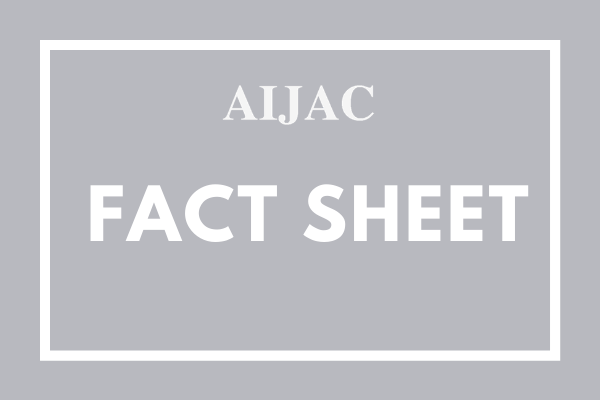FACT SHEETS
Racial discrimination laws in Australia
August 13, 2020 | AIJAC staff

This fact sheet is current as at August 2020.
SUMMARY
Australia’s Racial Discrimination Act 1975 makes it unlawful to discriminate against someone on the basis of their race, colour, descent, national or ethnic origin. Australians who believe they have been discriminated against on the basis of race can make a complaint to the Australian Human Rights Commission, to try and resolve the matter outside the courts. Australian states and territories also have their own racial discrimination legislation.
THE FACTS
Section 18C
In the past decade, there has been a debate around a particular section of the Racial Discrimination Act 1975, section 18C, which was introduced in a 1995 amendment to the Act.
Section 18C states that it is unlawful to undertake an action that would be reasonably likely to offend, insult, humiliate or intimidate a person or group of people on the basis of race.
Introduced concurrently with section 18C, the following section (18D) serves to protect free speech. Section 18D provides that if a comment is made reasonably and in good faith for artistic, academic, scientific or other public interest purposes, it won’t, prima facie, be considered a breach.
There have been attempts to adjust the Racial Discrimination Act 1975 to remove or amend section 18C, with critics arguing it is unnecessary and restricts free speech.
Many in the Jewish community, including AIJAC, believe that the Racial Discrimination Act 1975 does not need to be amended and there is adequate protection for free speech in Australia. In fact, many Jewish community organisations have argued in support of section 18C saying it helps Jewish individuals and organisations to combat antisemitism, including Holocaust denial, conspiracy theories and online hate.
In a submission to a 2016 parliamentary inquiry, AIJAC argued that the idea that section 18C creates a subjective “hurt feelings” test that threatens free speech in Australia is wrong as a matter of law. The language used in section 18C is consistent with other Australian legislation and comparable with similar legislation used in other jurisdictions. Moreover, the words “offend, insult, humiliate or intimidate” have always been read by courts as a single test, so it is incorrect, as many claim, that the legislation makes it illegal merely to “offend” someone. Removing it, AIJAC argued, would weaken the legislation.
AIJAC further argued that the Racial Discrimination Act 1975 contributes to community cohesion and the Act, including section 18C, has allowed those who have been vilified on the basis of race to be protected by law.
Following the amendment to introduce sections 18C and 18D, Jewish organisations observed a reduction in anti–Jewish harassment, particularly in jurisdictions where there had been cases.
In 2002, AIJAC’s Director of International and Community Affairs (then representing the Executive Council of Australian Jewry) Jeremy Jones, successfully argued in court that material published online by Frederick Toben vilified Jewish people by denying the Holocaust. Toben was found to be in breach of the Racial Discrimination Act 1975 In this same case, the Federal Court established that the Racial Discrimination Act 1975 applied to comments made on the internet.
That same year, in the case Jones v Scully [2002], a Tasmanian individual was found to have committed an offence under the Racial Discrimination Act of vilifying Jewish people by distributing offensive material.
State based legislation
Australia’s states and territories have their own racial discrimination legislation, which compliments the Commonwealth legislation, including the Anti-Discrimination Act 1977 (NSW), Racial and Religious Tolerance Act 2001 (VIC), Anti-Discrimination Act 1991 (QLD), Racial Vilification Act 1996 (SA), Equal Opportunity Act 1984 (WA) and Discrimination Act 1991 (ACT). These acts vary in substance, but all enhance protection against religious discrimination in Australia, including against hate speech.
In early 2020, there was a push to amend state-based discrimination laws to ban offensive symbols, including the swastika. In response, the Victorian Government has begun an inquiry into Anti-Vilification Protections, which seeks to assess the efficacy of the Victorian legislation. The NSW Government has also flagged it may consider amending legislation to ban the swastika.
Tags: 18C, Antisemitism, Australia, Racial discrimination





